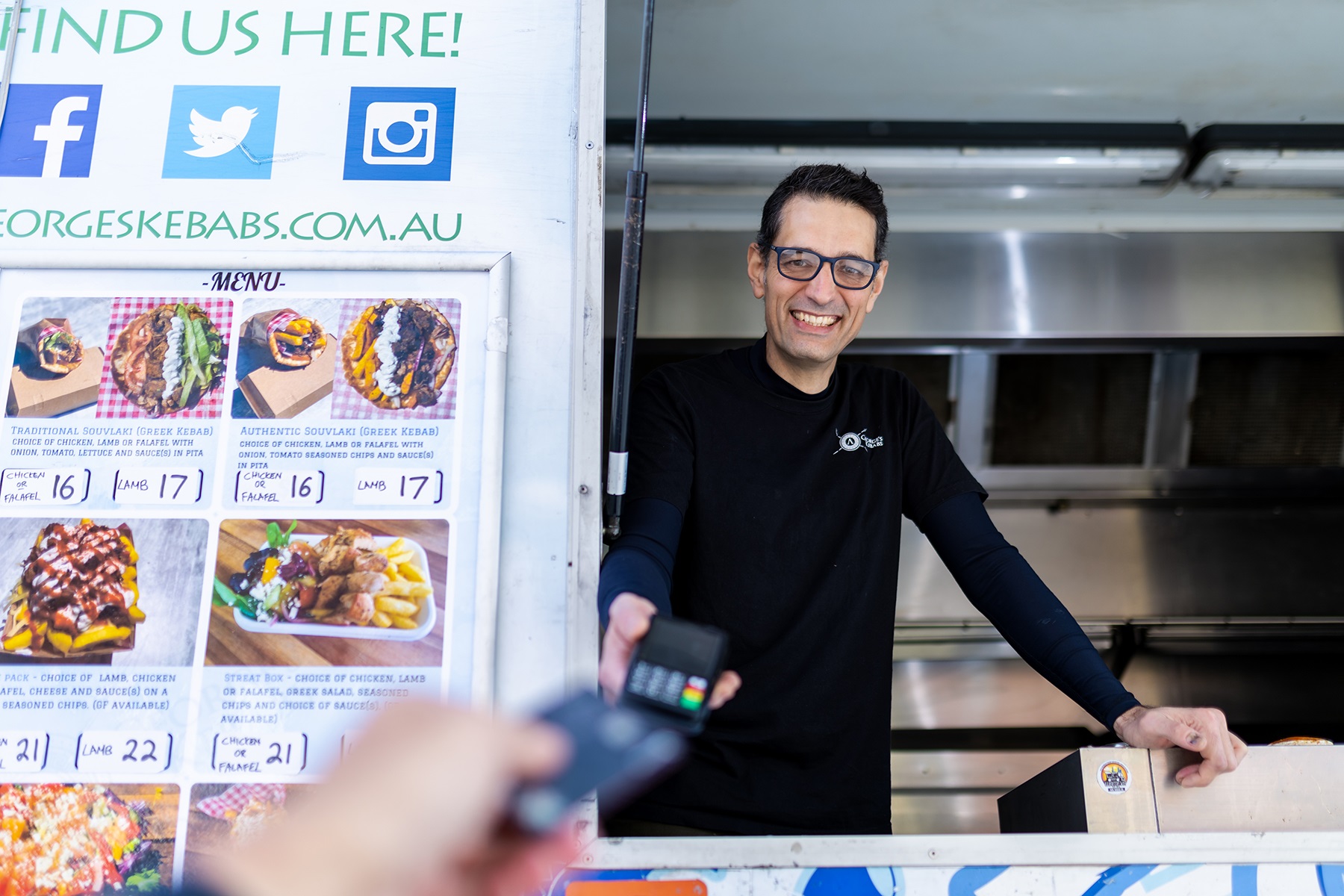Food based businesses are a popular pursuit for many aspiring business owners.
While the process of starting a business is generally the same regardless of your industry, starting a food based business does involve some additional steps.
Here is an overview of the additional steps you’ll need to follow to start a food based business.
Tip: We recommend reading this information along side our How to start a business information guide.
Opening a café or restaurant
Local government approval
Talk to your local government about your new business premises. Different councils may have specific building, and health requirements. You will need to submit all plans to your local government authority for approval. This includes:
- Changing signs or the exterior of a building.
- Adding or changing alfresco areas.
- Changing the use of the building (eg, from retail to a food business) or increasing the seating capacity.
Entering into a commercial lease
If you are renting premises for your café or restaurant, you will need to negotiate and sign a commercial tenancy agreement. The business premises section of our website contains a range of useful information to read on understanding commercial leases, and negotiating a lease.
You can also speak to one of our commercial tenancy advisers for guidance as part of our free business advisory service.
Tip: When selecting a location, the onus is on you as the business owner to ensure its fit for purpose. For a food business, you’ll need to ensure the premises has an appropriate water waste disposal system and grease trap/grease arrestor. Find out why this is important.
Liquor licence (if applicable)
If you intend to serve alcohol, you will need a liquor licence from the Department of Local Government, Sport and Cultural Industries. Your staff will also need to complete the approved Responsible Service of Alcohol course and you will be required to have an Approved Manager on site at all times.
A liquor license is not required for bring your own (BYO).
Employing staff
There are several important factors to consider when employing staff. In addition to staff needing to have the appropriate training on food safety standards, there are a number of employer obligations you need to be aware of.
If you’re new to hiring staff, read our tips on hiring employees to help you through the process.
Opening a food truck business
Vehicle compliance
Ensure the truck is compliant with mobile food safety regulations (including kitchen setup, storage, and waste disposal).
Event planning and permits
Plan the locations and events you’ll attend. You’ll need to apply for permits specific to your vehicle and the locations you intend to trade in. This might include mobile food vending permits, parking permits, and compliance with mobile food vehicle regulations.
Regular inspections and vehicle maintenance
Ensure your food truck is inspected regularly for food safety and roadworthiness.
Starting a home based food business
Comply with home based business regulations
Speak with your local government authority to understand if you can run a home based food business under their council laws. If you rent your home, you will also need your landlord’s approval before running a business from their property.
Packaging and delivery
If you will be selling food directly from your home, plan how you will manage the logistics around this, including how you will package food and/or delivery methods.
Storage and hygiene
If you can run your business from home, maintain high hygiene standards for food storage and preparation at home.
Food safety standards and licences
Everyone handling and selling foods has a responsibility to ensure it’s safe to consume.
There are a number of legal responsibilities food businesses in Western Australia will need to comply with. Visit the Department of Health website to find out more about starting a food business in Western Australia and the food safety requirements you’ll need to comply with.
At a high level, this may include:
Food business licence
Apply for a food business licence from your local government authority. This is required for cafés, restaurants, food trucks, and home based food businesses.
Food safety program
You may need to develop a food safety program to demonstrate how you will ensure the safety of your food and comply with food safety standards.
Food handler training
All staff handling food must have food safety training and certification. This training is essential to meet hygiene and safety standards.
Food safety supervisor
Under the Food Safety Standard, you’ll need a Food Safety Supervisor. The Food Safety Supervisor will need to be trained and certified, reasonably available when your business is open and able to promote food safety and give advice to any of your employees who handle food.
Tip: Use our free Business Licence Finder to discover the licences and permits you’ll need, depending on your business type and location.
More information
- Visit the Department of Health website to find out more about starting a food business in WA.
- Attend our How to Start a Food Business workshop.
- Discover the key things to know when starting a food truck.
- Learn about the recipe to success for a home based food business.
- Read the two things every food business premises needs.
- Consider if your food business ready for delivery apps?




